


RRC Polytech has worked with the heavy vehicle industry for several years. With support from partners, instructors, staff and students have undertaken prototype design, development and fabrication; testing and evaluation of components, systems and vehicles; and vehicle and fleet demonstrations using alternative/renewable fuels.
The number of organizations that have worked with VTEC.
The accumulated value associated to applied research projects.
Enhancing Workplace Charging across Canada’s Prairie Region through Emphasizing Strategies for Cost-Effective Adaptation of Charging Infrastructure
The NRCAN ZEVAI project involves conducting Applied Research and development of informational materials on the current workplace charging in the province with a focus on inexpensive Electric Vehicle L1 charging solutions, and their integration into existing workplace infrastructure, including the dissemination of these resources to partner organizations. The initiative aims to enhance workplace charging and ultimately increase ZEV adoptions across the Prairie Provinces.
Find stations from the following:



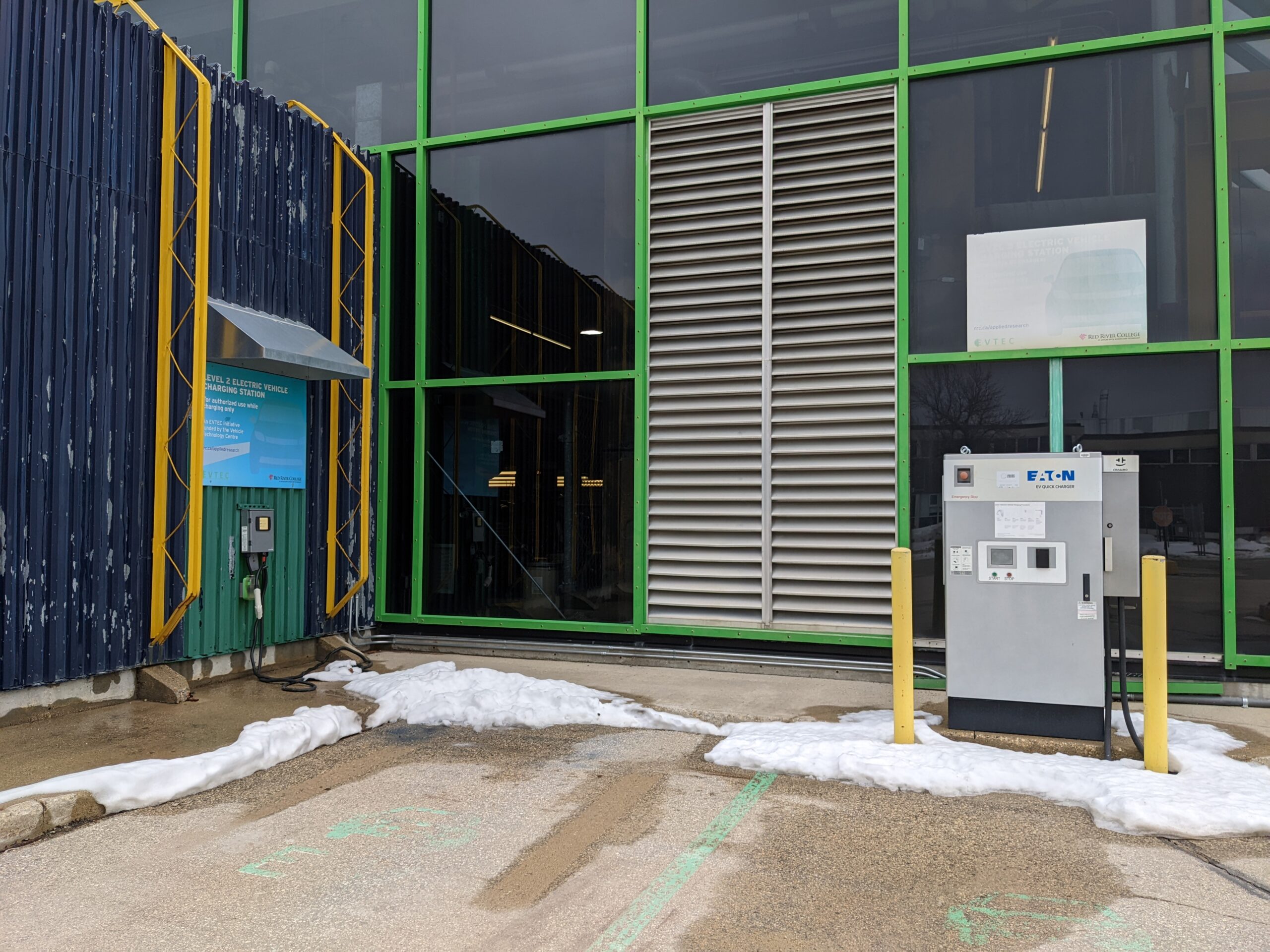
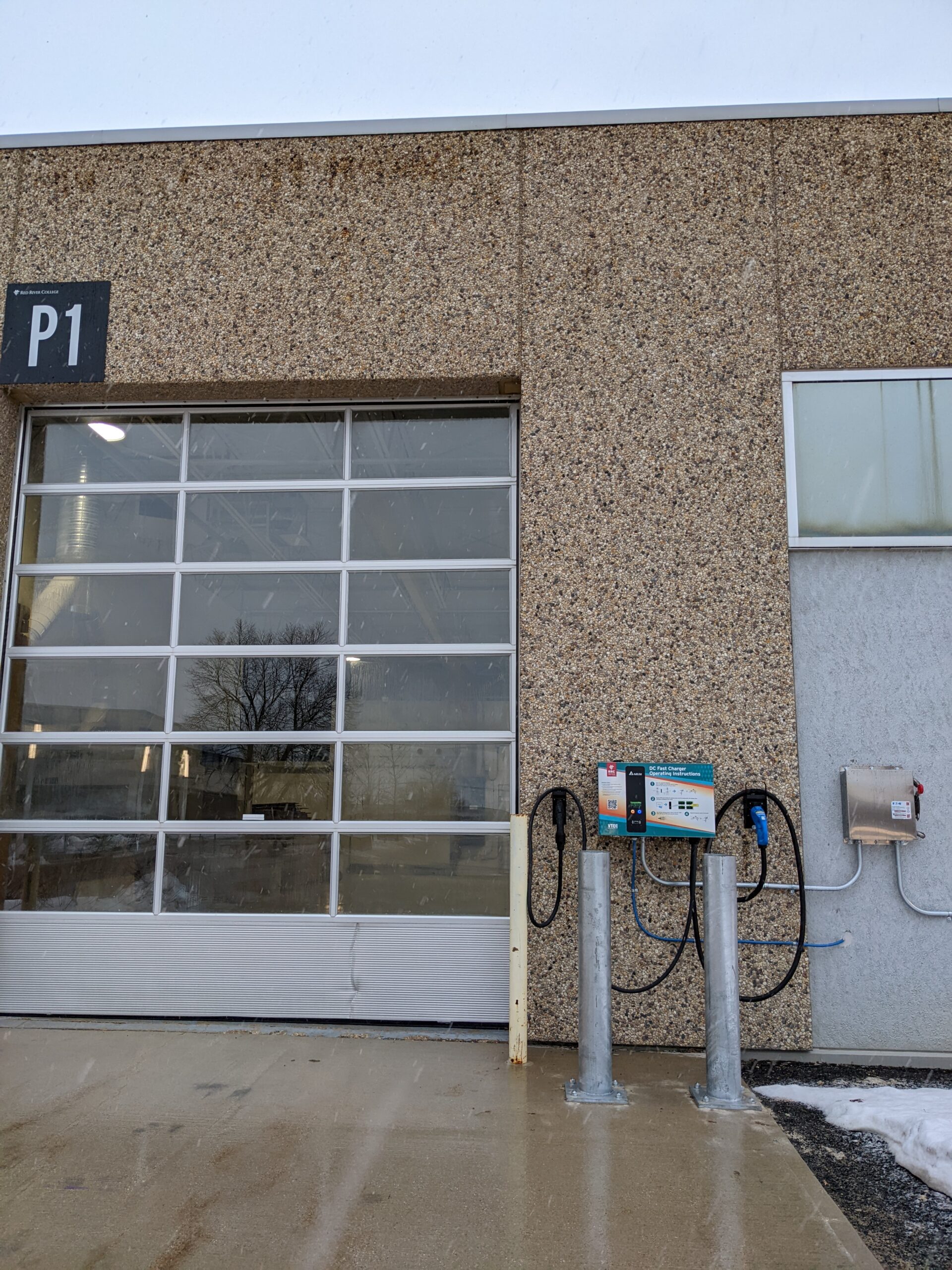
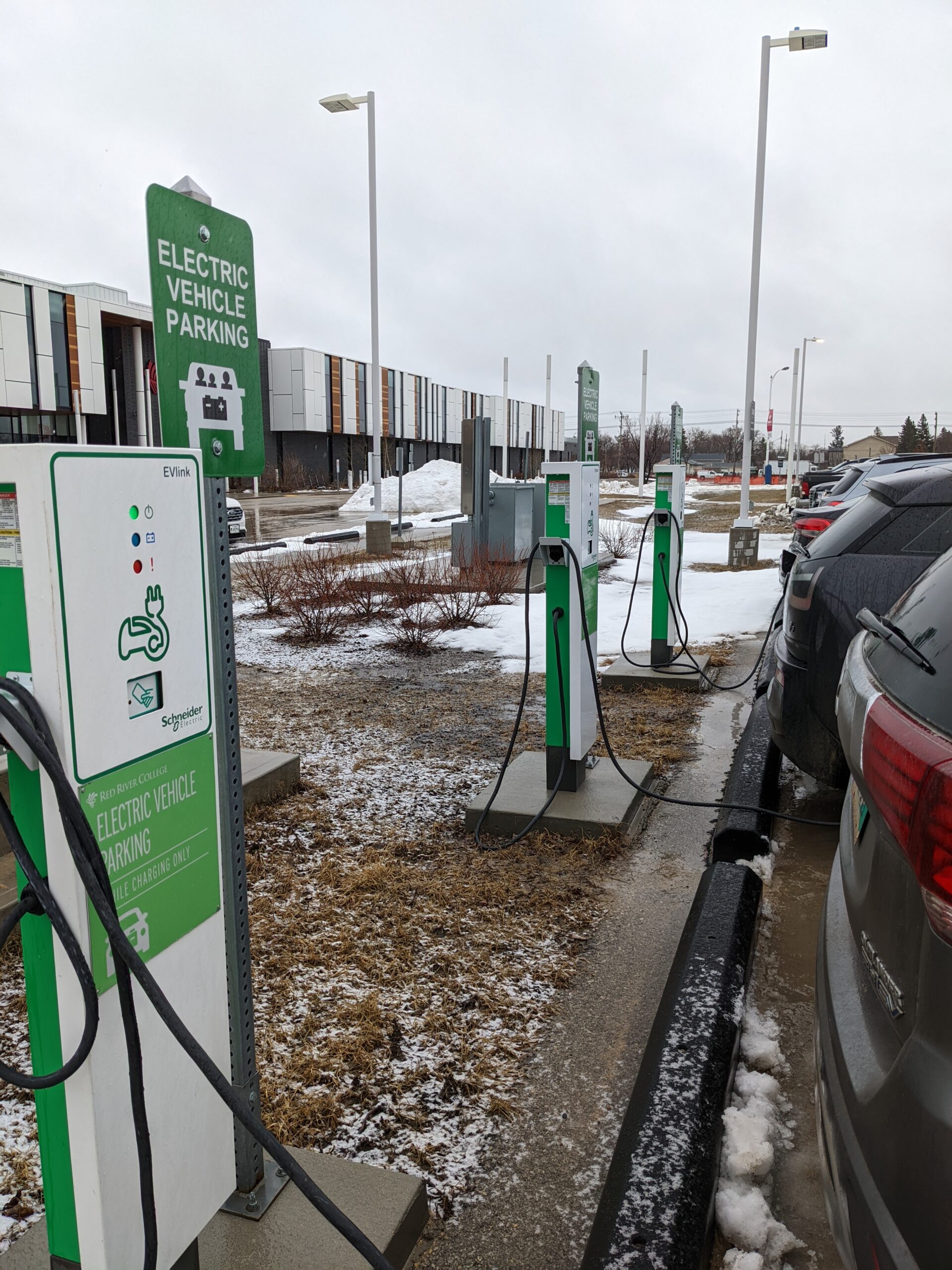
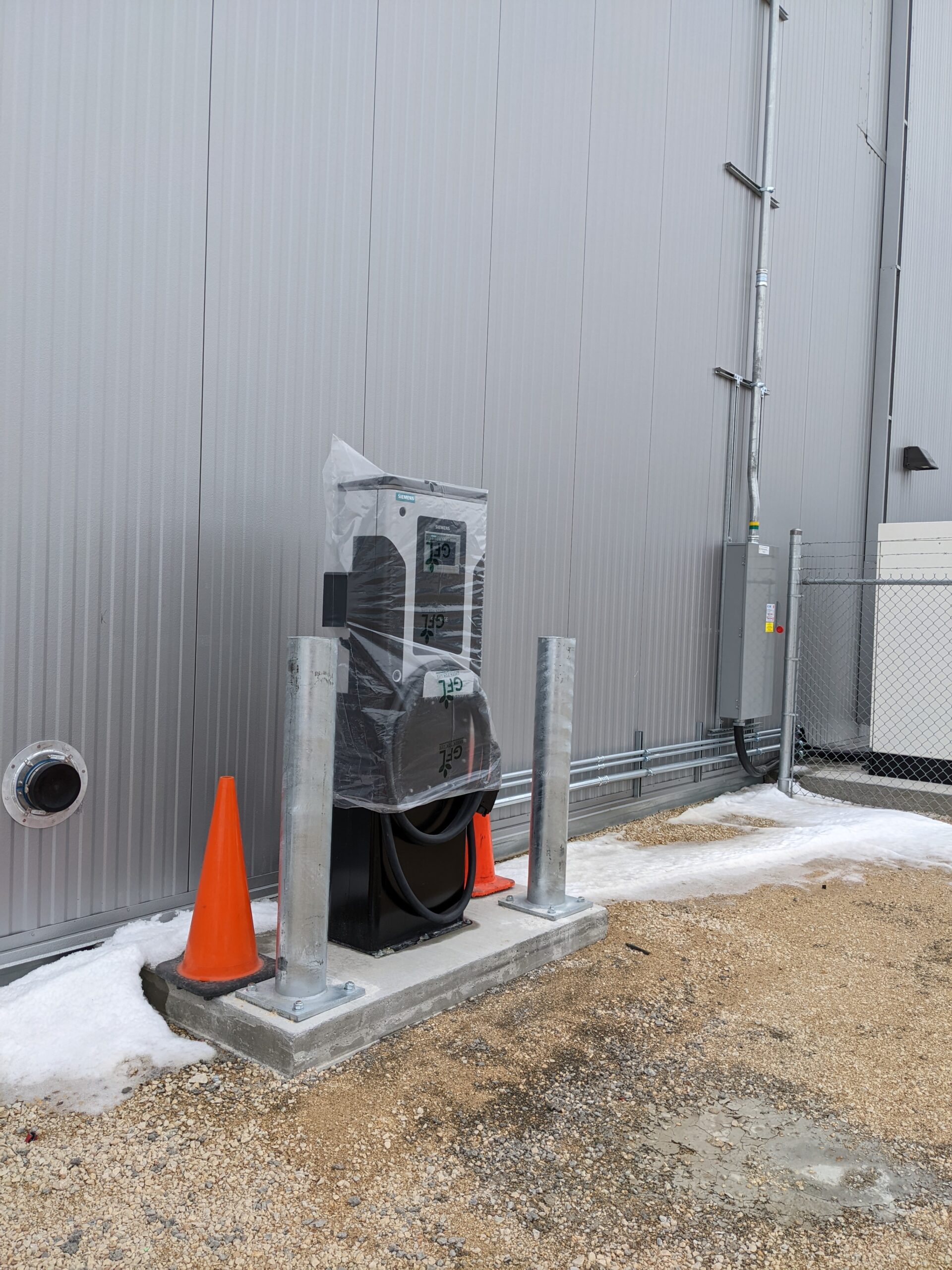
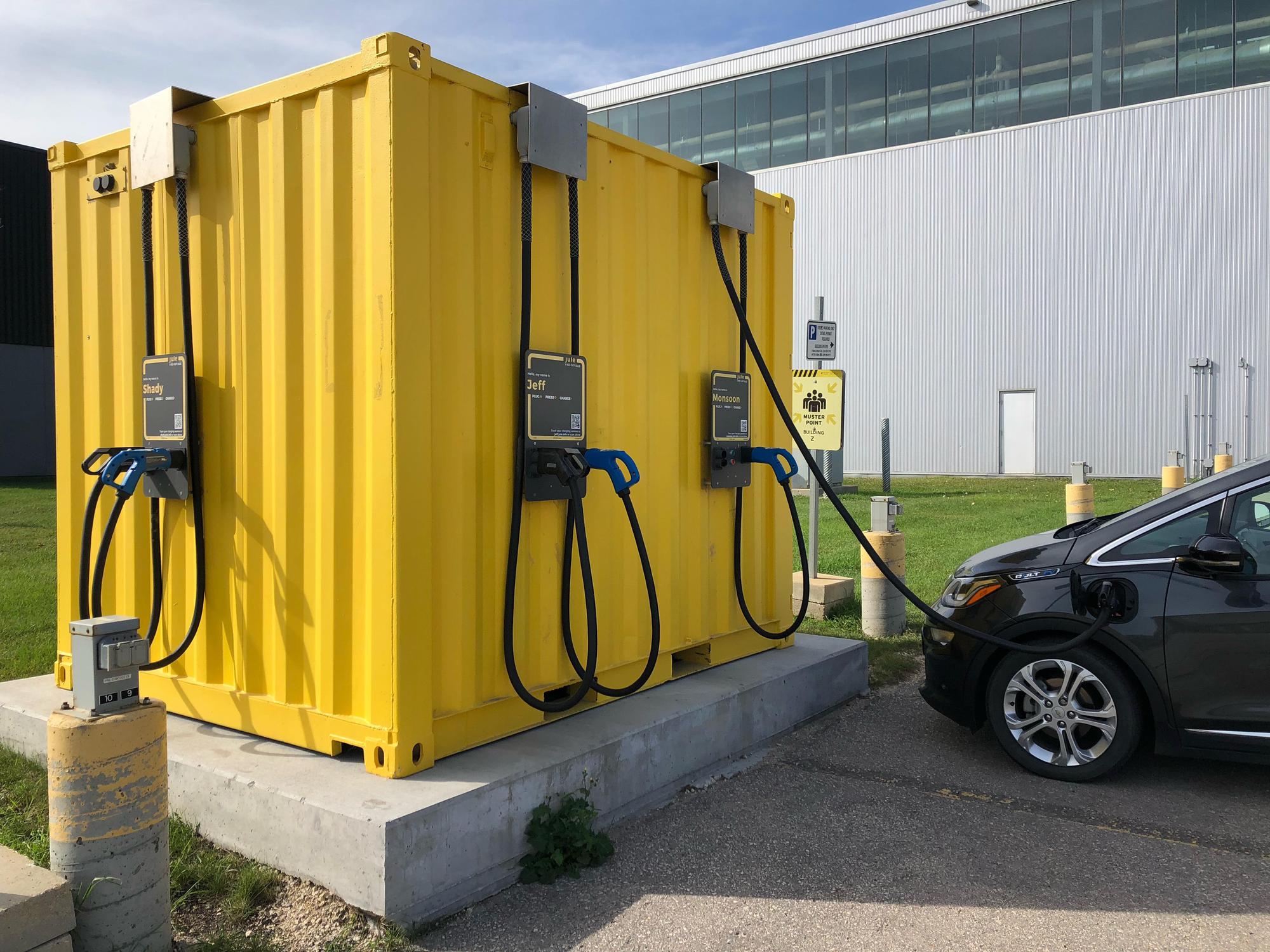
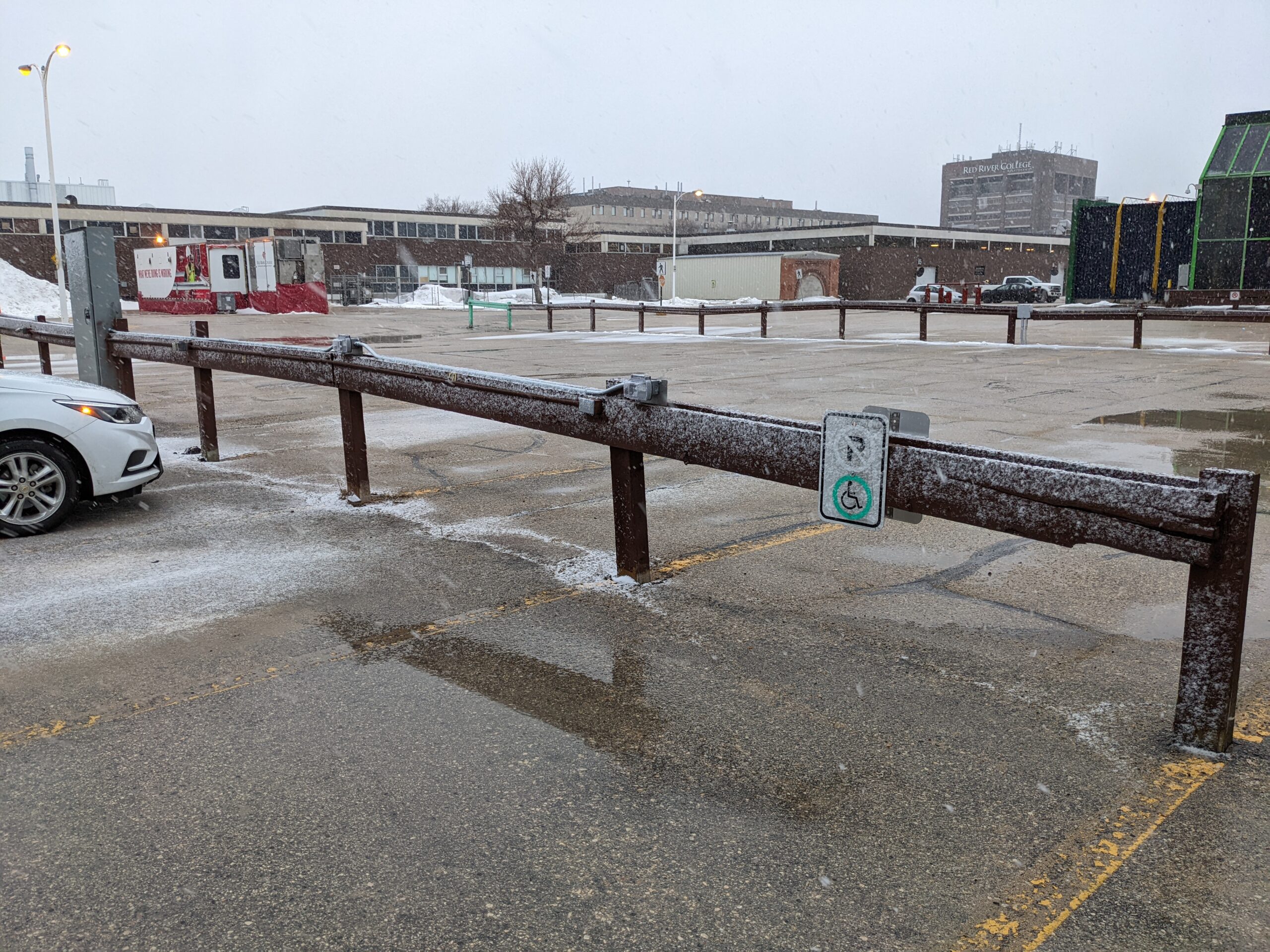
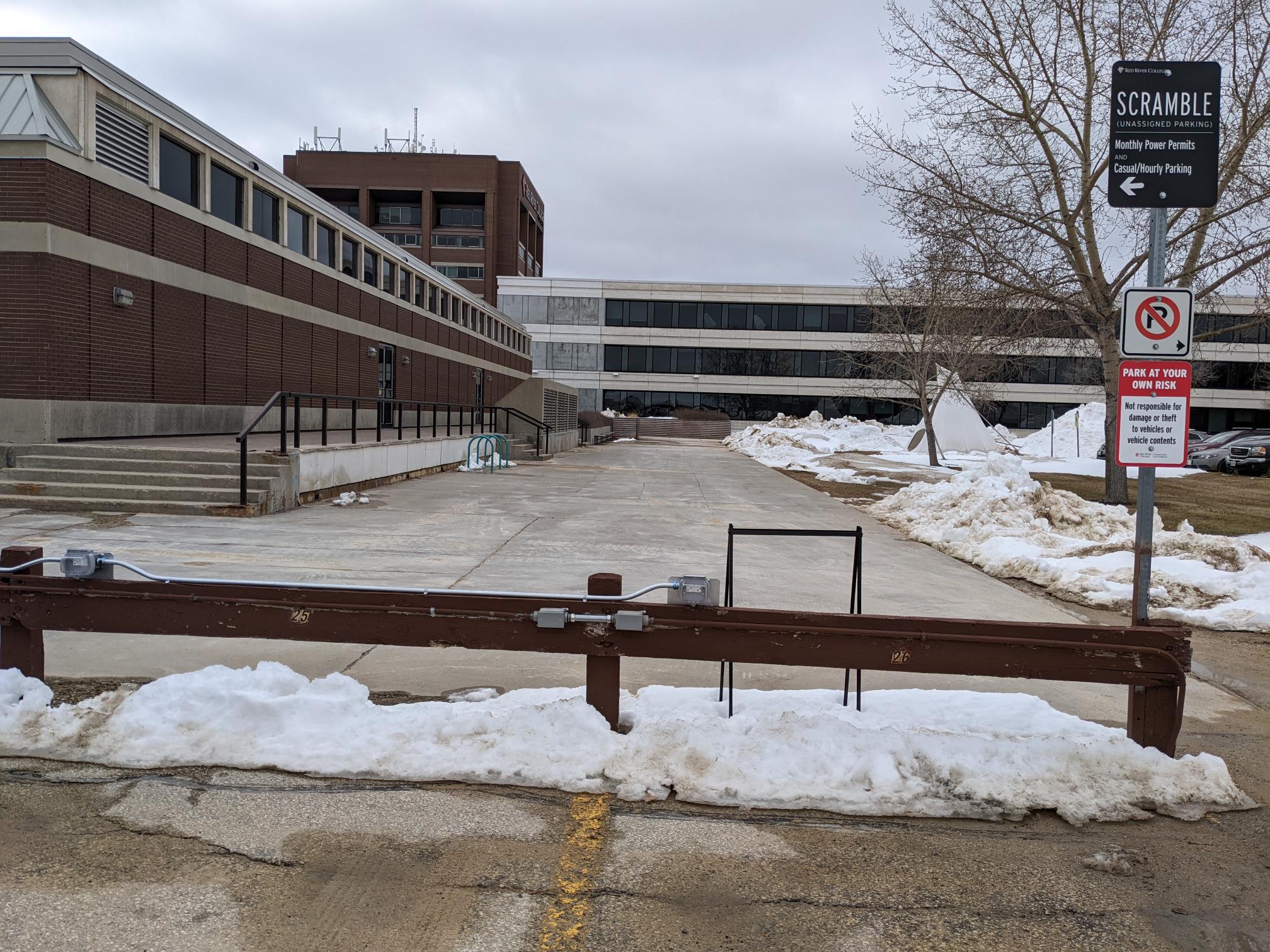

See all the RRC Polytech charging stations on a map ›

The Province has supported a number of RRC Polytech applied research projects over the years. These projects include the Red River Raycer (solar car); Hybrid Hydrogen Internal Combustion Engine and Hydrogen Fuel Cell bus demonstrations; and the Plug-in Hybrid Electric Vehicle fleet conversion, demonstration, and evaluation. These projects complement the $2.4 million investment by Western Diversification for research equipment and related infrastructure for the Advanced Transportation & Energy Centre (ATEC) within the Vehicle Technology & Research Centre (VTRC).
EVTEC was developed with the support of the Province of Manitoba to help test and demonstrate electric vehicle technologies, while allowing RRC Polytech to enhance its applied research and training programs. Catalyzing this initiative has been the Province’s collaboration with Mitsubishi Heavy Industries, New Flyer Industries, Manitoba Hydro, and RRC Polytech on the $3-million, 3-year project to develop an all-electric transit bus and charging system.
EVTEC’s mission was threefold:
Innovation
To support innovation among Manitoba’s transportation sector, project development and management was led by Applied Research & Commercialization (AR&C) and the School of Transportation, Aviation & Manufacturing (TAM). With a strong industry network and a history of collaborating with businesses to conduct practical applied research projects, the College applied its successful model of supporting innovation to enhance and improve electric vehicle technology.
Education
To support education enhancement in the area of electric vehicles, TAM provided full-time instructor support. Through this support, RRC Polytech curriculum and training was further developed to include an enhanced focus on electric vehicles. An online electric vehicle resource centre hosted the latest resources, including both publicly available and internally developed documents, whitepapers, reports, and case studies. EVTEC did not provide recommendations to consumers concerning commercially available electric vehicles.
Outreach
To support public awareness and network building, EVTEC not only used both traditional and digital media tools, but offered a series of events such as ‘lunch & learns’, open houses, ‘drive-n-rides’, and technical full-day forums – for the public and/or industry professionals.
RRC Polytech staff and students designed and built a prototype of Motor Coach industries’ (MCI) 2010 J4500 and 2007 D4500 buses to allow them to accommodate the latest U.S. EPA standards for new reduced-emission engines. RRC Polytech worked, as part of the project team, to design and integrate airflow, water, and electrical components to enable the prototypes to meet the new standards. Both prototypes were successfully incorporated into a MCI’s products.
RRC Polytech’s solar-powered car, the Red River Raycer, was built to compete in the 2005 and 2008 4,000 km North American Solar Challenges. The Red River Raycer contains 406 solar cells, runs on a lithium ion battery and can reach speeds of up to 120 km per hour. In 2008, the Red River Raycer finished in 9th place among 15 competitors and was the only Canadian college entry competing against major universities from across North America – showcasing the College’s expertise in energy efficient design and technology,
In 2006, RRC Polytech operated the bus and refueling station as part of the demonstration and testing of the 40-foot, zero pollution emitting New Flyer Industries vehicle that was outfitted with three HyPM 65 fuel-cell power modules and ultra-capacitors (to recapture energy from the bus’s brakes). Other project partners included: the Province of Manitoba, Hydrogenics Corporation, NRCan, and Maxwell Technologies of California.
This project was an “in-fare” service demonstration of a hybrid bus in cold weather conditions. New Flyer Industries built the bus’s body and ISE Corporation in San Diego installed the 10-cylinder Ford engine and hybrid-electric drive systems. RRC Polytech staff generated the hydrogen fuel, operated the refueling station, maintained and serviced the bus, and provided troubleshooting expertise. Project partners included: Kraus Global, NRCan, the Province of Manitoba, the Vehicle Technology Centre, the City of Winnipeg Transit Department, SunLine Transit Agency, the University of Manitoba Transport Institute, and Western Diversification.
RRC Polytech campuses are located on the lands of the Anishinaabeg, Ininiwak, Anishininwak, Dakota Oyate, and Denésuline, and the National Homeland of the Red River Métis.
We recognize and honour Treaty 3 Territory Shoal Lake 40 First Nation, the source of Winnipeg’s clean drinking water. In addition, we acknowledge Treaty Territories which provide us with access to electricity we use in both our personal and professional lives.